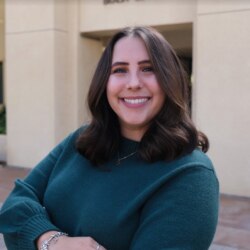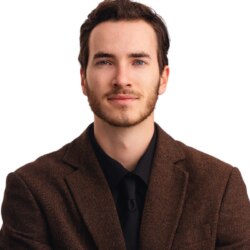Bakersfield Sets Example for Other Cities in Holding Protester Accountable
Bakersfield’s City Council Meeting took an unexpected turn recently when Bakersfield resident Riddhi Patel threatened the mayor and council members and was subsequently arrested. Patel attended the meeting to support the ratification of the United Liberation Front’s proposed resolution for a ceasefire in Gaza, but her remarks quickly devolved into an expletive-filled diatribe about the oppressive nature of the City Council, the Hindu belief in violent revolution against oppressors, and ultimately concluded with “We’ll see you at your house, we’ll murder you.”
This incident is not the first time Riddhi Patel publicly profaned elected officials: her LinkedIn profile picture shows her wearing a T-shirt that reads “F*** Kern County DA Cynthia Zimmer,” and a Facebook post by Patel in 2021 says “F*** Modi. F*** the BJP. F*** Nikki Haley. F*** Dinesh. F*** Bobby Jindal. F*** Hindu fascism.”
Patel worked as the economic development coordinator at the Center on Race, Poverty, and the Environment before being fired for her outburst. She is also associated with the United Liberation Front, a pro-Palestinian group, and the Sunrise Movement, an organization dedicated to environmental and racial justice. While many of these organizations have since issued statements condemning her actions, Patel’s outburst is an example of a national problem: Patel and protesters like her expect to be able to terrorize, and threaten to terrorize, school and government officials without fear of being held responsible for their actions, often because their beliefs align with the majority party.
Before it was erased, Patel’s biography on the Center on Race, Poverty, and the Environment’s website said that she “enjoys holding elected officials accountable.” Patel frequents City Council meetings and often shares her opinion during public commentary. What started as holding her representatives “accountable,” however, with passing time and increasing anger degraded to debasing them on social media, donning expletive-filled clothing and parading around City Hall, and ultimately resulted in death threats toward elected officials.
But while Patel’s unhinged antics might not be especially surprising in the shadow of the protests across college campuses recently, the response of Bakersfield’s City Council was unexpected. The City Council immediately asked police officers to remove Patel from the meeting and the Kern County District Attorney charged Patel with 18 felony counts. The charges were later amended by the D.A., and she is currently charged with eleven counts of threatening with intent to terrorize, eight counts of threatening public officials, and two counts of attempting to threaten with the intent to terrorize. Last week, Patel’s preliminary hearing was postponed until August 5.
Patel pleaded not guilty to the charges against her. A video of her arraignment shows Patel crying and wiping her tears. She’s presumably not crying out of remorse, but rather with the realization that she will finally be held responsible for her behavior.
Political demands and demonstrations are not new to city halls and college campuses. Stanford, UC Berkeley, and UCLA were the epicenters of 1970s protests against the Vietnam War. Nearly fifty-five years later, universities are once again the epicenter of supposed “anti-war” protests. Pro-Palestinean protesters demand that elected officials call for peace via a ceasefire while at the same time much of their messaging, like Patel’s, calls for murder. At Columbia University, for example, student and protest leader Khymani James was recorded saying “Zionists don’t deserve to live” and “Be grateful that I’m not just going out and murdering Zionists.”
Bakersfield City Council’s decisive reaction to Patel’s threats should inspire other community leaders to draw a line in the sand to protect legitimate and effective governmental engagement. Elected officials, public safety leaders, and yes, even college presidents, should be unequivocal when distinguishing First Amendment-protected speech from threats of violence.
Growing public sentiment clearly agrees. When demonstrators at the University of North Carolina attempted to replace an American flag flying at half-mast with the Palestinian flag in April, members of UNC fraternities made national headlines when they stepped in to protect Old Glory from being torn down. A Gofundme started in support of these young men has raised more than half a million dollars – more than ten times what was raised via a similar Gofundme for pro-Palestinian protesters at UNC. Supporters say that the actions of these young men initiated “an American cultural moment” and “a movement” and even compared the students’ holding up the flag to the iconic image of soldiers raising the flag at Iwo Jima.
Current events that gain the most media attention are often those that display the most radical of society, but in every place — from California to North Carolina, both in city hall and on campus — there are ordinary Americans who hunger for a sense of normalcy after years of government leaders, college administrators, and the media letting out-of-control protesters off the hook.
Let’s hope that in the months leading up to the election, where unhinged protests are bound to get even worse, those elected to represent the people will follow Bakersfield’s lead and put common sense and public safety first.
By Abby Lehnig, California Policy Center’s Kern Regional Director, and Christian Mayer, a California Policy Center research intern.

